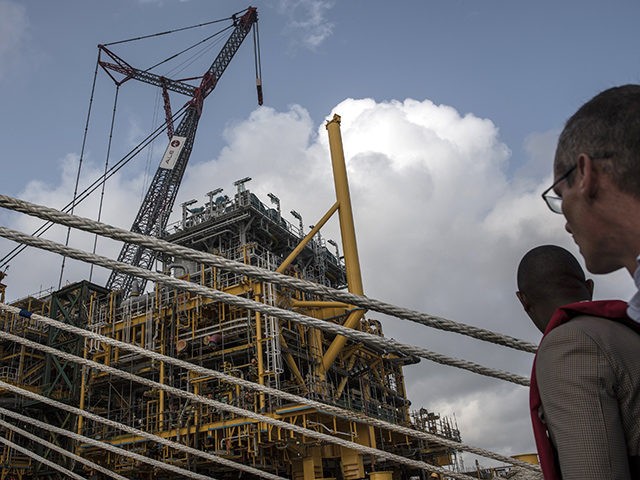The Nigerian National Petroleum Corporation (NNPC) has denied recent claims it lost 48 million barrels of crude oil it shipped to China, Nigerian newspaper This Day reported on Monday.
Nigeria, Africa’s largest oil and gas producer, supplies China, the world’s largest crude oil importer, with oil shipments as a member of Beijing’s Belt and Road Initiative (BRI). Though it ostensibly supports the development of infrastructure and industry in developing nations, the BRI’s predatory loan structure effectively forces vulnerable nations into perilous debt traps.
Mexican oil trading firm Samano S.A. de C.V. recently wrote the NNPC “demanding a five percent reward for ‘exposing’ [China’s] alleged diversion and theft of 48 million barrels of [Nigerian] crude oil valued at over $2 billion,” according to the report.
The NNPC says “there was no stolen Nigerian crude oil anywhere in China” and has dismissed the trading firm that made the allegation as “an international crime syndicate.” Nigerian state-owned oil firm Afe Babalola said it plans to sue the company for its unsubstantiated claims and demand for a monetary reward, part of what it describes as “a failed attempt by officials of a Mexican firm to extort, intimidate, and defraud” the NNPC.
The denial comes two days after Nigeria’s transport minister insisted that the government is capable of paying China back billions of dollars in railway loans, secured through Nigeria’s BRI membership, in 20 years, Nigeria’s Premium Times reported on Sunday.
“Nigeria has the capacity to pay back for the period of 20 years at 2.8 percent,” Nigerian transport minister Rotimi Amaechi said.
As the Premium Times recalled, Nigeria’s BRI railway debt to Beijing has piled up in recent years, casting doubt on Amaechi’s claims that the government will be able to repay the loans in just two decades:
In 2017, the Nigerian government secured a $7.5 billion loan from the Chinese for the Lagos-Kano rail project. Another $1.5 billion loan was received from China for the Lagos-Ibadan rail construction. Earlier this year, the Senate approved a $22.7 billion loan request by President Muhammadu Buhari: 70 percent of the loan (about $17 billion) will be sourced from China’s EXIM Bank.
In a statement on Saturday, Amaechi praised Beijing’s lending terms, claiming China was “the only country giving out loans with a low-interest rate of 2.8 percent.”
Amaechi’s insistence that China’s loans have been favorable for Nigeria conflicts with recent data from the Center for Global Development, which found that the terms of Chinese lending were “consistently harder than World Bank terms, particularly for the poorest countries” such as Nigeria, Reuters reported.
“Chinese institutions offered fewer grants; grace periods on loans were shorter, and the weighted mean interest rate was higher – 4.14 percent compared to the World Bank’s 2.1 percent,” the study found.
According to the Overseas Development Institute, lending from China accounts for ten percent of external debt service in Nigeria.

COMMENTS
Please let us know if you're having issues with commenting.